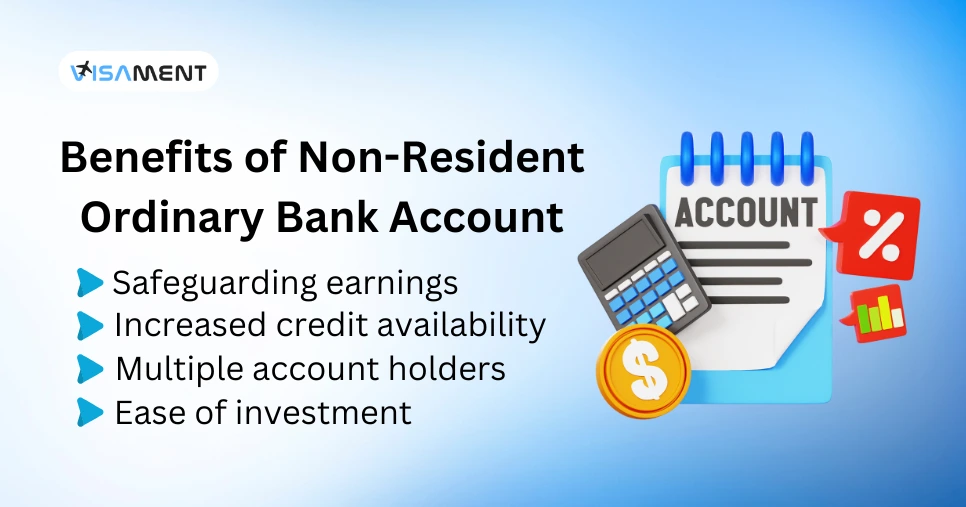NRO stands for Non-Resident Ordinary. It is a type of NRI bank account. Several Non-Resident Indians (NRIs) have overseas income while also earning money in India. If you are among them, an NRO bank account is ideal for managing your earnings, investments, and expenses in India.
If you are an NRI and want to open an NRO bank account in India, you’re in the right place. In this blog, we will discuss what an NRO bank account is, its benefits, limitations, and more. To learn more about Non-Resident Ordinary accounts, stay tuned with us. Let’s begin with the question: What is an NRO bank account?
Do you want to deposit rent, dividends, pensions, gifts, or income from the sale of immovable property in India into your bank account? If yes, then an NRO bank account is the perfect option for you. It is a type of NRI bank account denominated in Indian Rupees (INR). Persons of Indian Origin (PIOs) and Overseas Citizens of India (OCIs) can also deposit their money in this account.
According to the Foreign Exchange Management Act (FEMA), if you attain NRI status, it is mandatory to convert your existing bank account into an NRO account. Additionally, if you want to Open an NRO Account separately, many banks allow NRIs to hold multiple Non-Resident Ordinary (NRO) accounts.
Besides this, there are different types of NRO accounts, such as savings accounts, current accounts, recurring deposits, and fixed deposit accounts. Now that we understand the basics, let’s explore the benefits of an NRO bank account in India.

It is important to understand the benefits before opening any bank account. So if you are going to open a NRO account then become familiar with its benefits that are mentioned below.
Many Non-Resident Indians (NRIs) have income sources in India, including rental income, dividends, stock market investments, and interest earnings. These funds can be securely deposited in an NRO bank account. Open an NRO account in India to ensure your domestic earnings remain safe and easily accessible.
If you are an NRI and need a loan against your NRO fixed deposit, banks provide loans against NRO FDs at lower interest rates. This is because these loans are backed by collateral, making it a great option for financial emergencies in both India and abroad.
One of the biggest advantages of an NRO account is the option to open a joint account. An NRI, PIO, or OCI can open an account with a resident Indian. If both account holders reside outside India, they can authorize an Indian resident as a Power of Attorney (POA) holder to manage transactions on their behalf.
An NRO account provides safe and assured returns on NRO fixed deposits (NRO FDs). Additionally, NRO fixed deposit accounts are insured up to ₹1 lakh by the Government of India, offering financial security to NRIs.
Now that we’ve discussed the benefits, let’s also consider the limitations of an NRO bank account.
Expert NRI application services to manage your global financial, legal, and personal needs with ease and efficiency through Visament.
Contact US
These are some of the limitations of NRO accounts. Next, we will shed light on the required documents to open this account in Indian banks.
To open an NRO bank account in India, you must submit the following:
Residential Status: Available to NRIs (Non-Resident Indians), PIOs (Persons of Indian Origin), and OCIs (Overseas Citizens of India).
Transaction Currency: Transactions are conducted in Indian Rupees (INR).
Joint Account: You can open a joint account with either an NRI or a resident Indian.
Power of Attorney: An Indian resident can hold the power of attorney for managing the account.
With the help of this blog on NRO bank account readers will get to know the detailed overview of this type of NRI account. Above we discussed what an NRO account is, its benefits, limitations, and required documents. Still, if you are facing any issues then we strongly recommend you to connect with Visament. They will help you in the process of opening an NRO account. By which applicants can open an account with ease and hassle-free.
Yes, NRIs can transfer money to an NRO account via international wire transfers or remittance services. The amount is converted into Indian Rupees (INR) upon deposit.
Yes, but once you attain NRI status, you must convert your resident savings account into an NRO account as per FEMA rules before making transfers.
Yes, you can transfer money from an NRO account to a resident savings account in India. However, NRIs cannot hold a resident savings account and must use an NRO account instead.
Yes, NRIs in the USA can open an NRO account online by submitting documents digitally or via courier. Some banks offer video KYC for verification.
Yes, funds can be withdrawn in Indian Rupees (INR) from an NRO account at any ATM or bank branch in India.
NRIs, PIOs, and OCIs can open an NRO account to manage income earned in India, such as rent, dividends, or pensions.
Depends on the NRIs requirements.
Yes, but once transferred, it cannot be reversed. Use an NRO account for managing Indian earnings and an NRE account for foreign income with repatriation benefits.
When you visit a website, it may store data about you using cookies and similar technologies. Cookies can be important for the basic operations of the website and for other purposes. You get the option of deactivating certain types of cookies, even so, doing that may affect your experience on the website.
It is required to permit the basic functionality of the website. You may not disable necessary cookies.
Used to provide advertising that matches you and your interests. May also be used to restrict the number of times you see an advertisement and estimate the effectiveness of an advertising campaign. The advertising networks place them after obtaining the operator’s permission.
Permits the website to recognize the choices you make (like your username, language, or the region you are in). Also provides more personalized and enhanced features. For instance, a website may inform you about the local weather reports or traffic news by storing the data about your location.
Aid the website operator to determine how the website performs, how visitors interact with the site, and whether there are any technical issues.